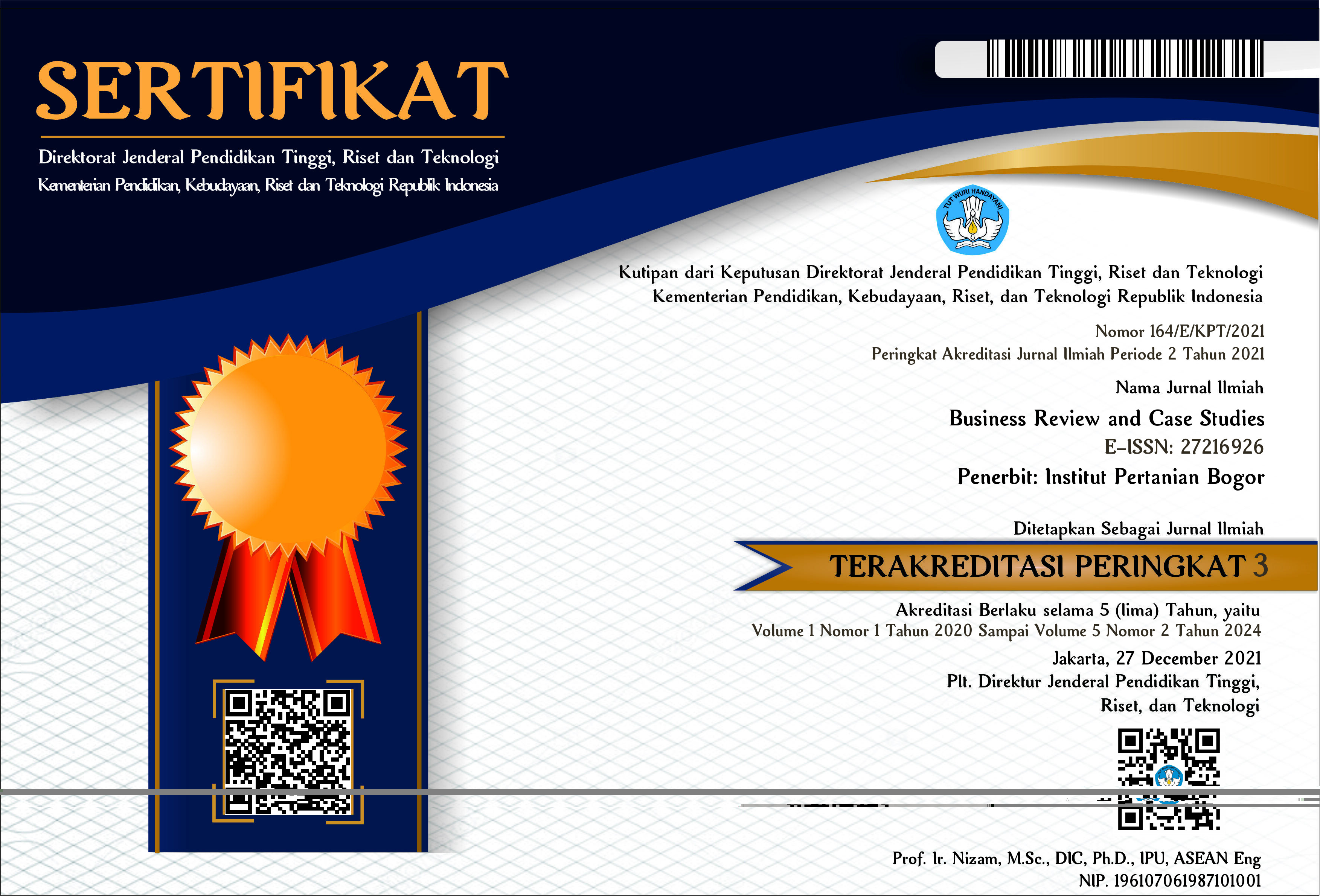Understanding The Role of Lifestyle and Personality Traits in Sustainable Food Purchase Intention
Abstract
Background: Demand for sustainable food products in the global market experienced a significant increase in 2020. When compared with the Asia Pacific and global regions, the per capita growth of Indonesian sustainable food products in 2021 2021 is only 0.06 USD. The market for sustainable food products in Indonesia is still in its early stages and is expected to increase by 6.1% from 2021-2026.
Purpose: This study aimed to analyze factors that influenced sustainable food purchase intention and its managerial implications in the design of sustainable food marketing strategy.
Design/methodology/approach: The study involved six variables: consumer lifestyle, consumer personality, attitudes toward sustainable food products, subjective norms, perceived behavioral control, and sustainable food purchase intention. Data were collected from 209 respondents in the Jabodetabek area and analyzed using Partial Least Squares Structural Equation Modelling (PLS-SEM).
Findings/results: The results of this study indicated that consumer lifestyle and personality had no significant direct effect on sustainable food purchase intention. However, the study showed that consumer lifestyle and personality positively and significantly affected attitudes toward sustainable food products. Furthermore, attitudes toward sustainable food products, subjective norms, and perceived behavioral control positively and significantly impacted sustainable food purchase intention. Additionally, consumer lifestyle and personality had a significant indirect effect on sustainable food purchase intention through attitudes toward sustainable food products.
Conclusion: The factors that influenced sustainable food purchase intention directly included attitudes toward sustainable food products, subjective norms, and perceived behavioral control. In contrast, consumer lifestyle and personality had an indirect effect on sustainable food purchase intention through attitudes toward sustainable food products.
Originality/value (State of the art): This study uses the LOHAS lifestyle and the Big Five personality traits to understand sustainable food purchase intention in the Jabodetabek area.
Keywords: LOHAS lifestyle, personality traits, organic food, sustainability, theory of planned behavior







.jpg)






